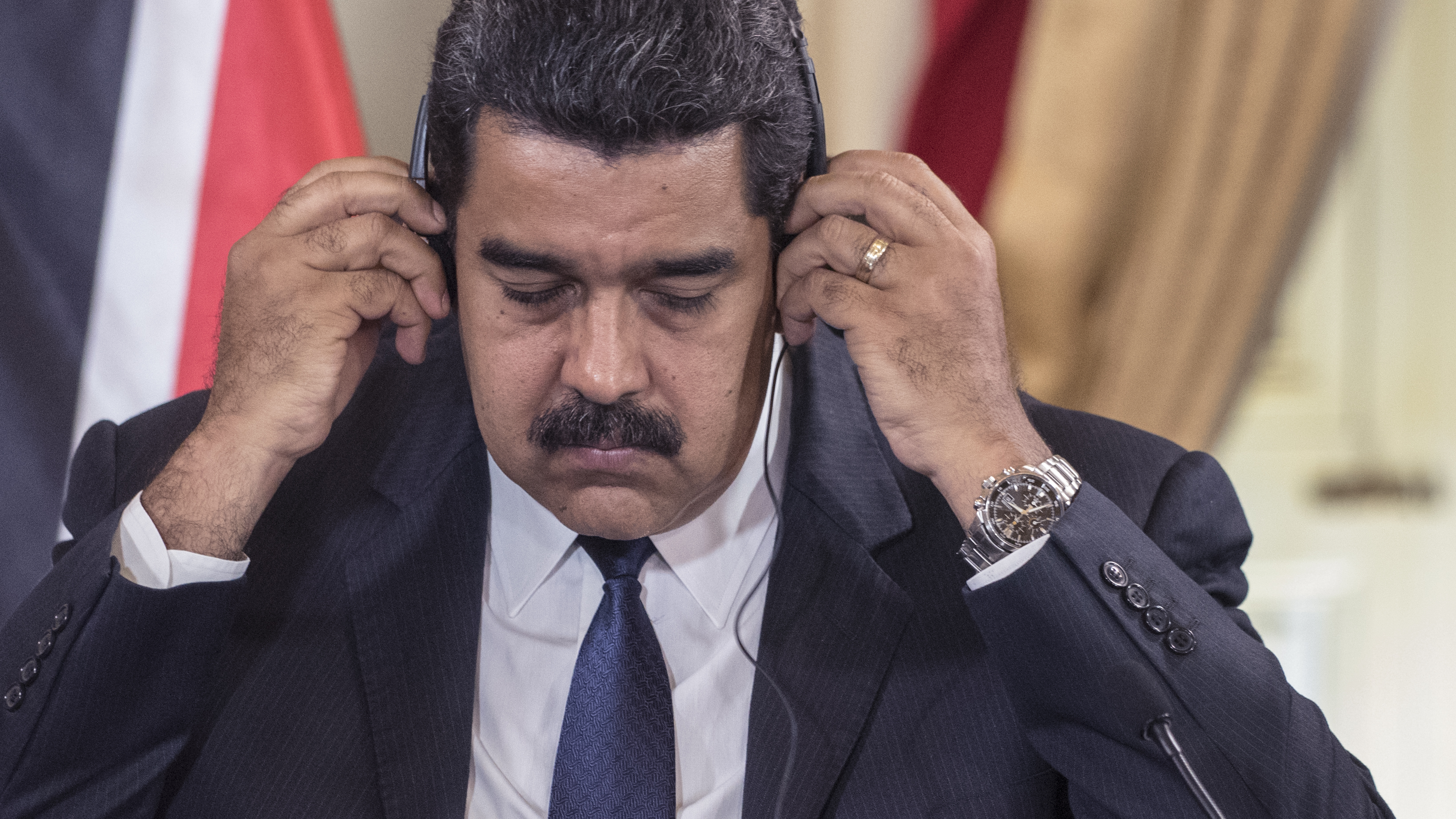Today's Headlines and Commentary
Lawfare’s daily roundup of national security news and opinion.
Published by The Lawfare Institute
in Cooperation With

Yesterday, a Republican-controlled Senate panel released a nearly 1000 page report about Russian ties to the Trump campaign and the Kremlin’s attempts to sabotage the 2016 U.S. presidential election, according to the New York Times. The report concluded that Russian President Vladimir Putin personally directed interference efforts targeting the Democratic Party, writes Reuters. The document, which is the Senate Intelligence Committee’s final review of Russian meddling in the 2016 election, is expected to be the most definitive public account of the 2016 election controversy.
Former FBI lawyer Kevin Clinesmith pleaded guilty in federal court today for doctoring an email as part of the bureau’s early-stage probe into Russia-Trump collusion in the 2016 election, writes CNN.
Amid a summer of protest against police brutality and racial inequality, several Democratic-led legislatures are making police reform an urgent priority, reports the Wall Street Journal. Supporters of reform say that by rewriting policing rules in states such as California, the legislative actions will inspire similar moves in other states across the country, according to Politico.
The New York Times Magazine profiled the “Boogaloo” extremist movement and explained how it has spread on social media.
In response to China’s new anti-dissent law imposed on Hong Kong, American universities are weighing measures to protect students and faculty from Chinese prosecution, writes the Journal. At schools such as Princeton and Harvard, professors will anonymize student work or offer amnesty to opt out of sensitive class conversations to protect their identities from the Chinese government.
Postmaster General Louis DeJoy said yesterday that the Postal Service will suspend operational cut-back changes until after the USPS election, reports the Times. The announcement comes as lawmakers have called for Dejoy to testify before Congress amid national concerns about voters’ abilities to cast their ballots by mail in the upcoming 2020 election after the postmaster general rolled back USPS capacities.
Yesterday, Belarus President Alexander Lukashenko vowed to stand firm against opposition, according to the Times. Sparked by a disputed presidential election on August 9, hundreds of thousands of demonstrators have since come out to stand against President Lukashenko and his violent crackdown on protests. Russia has offered unspecified security assistance to Lukashenko, reports NPR.
An internal security breach at Twitter five years ago yielded personal data that was later used by Saudi Arabia to arrest dissidents, writes Bloomberg. In 2015, two Twitter employees acting as spies for the Saudi government allegedly accessed more than 6,000 accounts. According to lawsuits, various human rights groups, as well as the sister of a man who disappeared, it is now clear that information from this breach enabled Riyadh to track and punish people who had been critical of the Saudi regime online.
Facebook is declining to cooperate with an investigation into Myanmar’s alleged genocide against the Rohingya people, according to TIME Magazine. In June, The Gambia filed an application in U.S. federal court seeking the documents and communications of Myanmar military officials from Facebook. If obtained, this information could be used as evidence at the International Court of Justice helping to prove genocidal intent. But Facebook filed in opposition of the request, calling the application “unduly intrusive or burdensome” and arguing that it would be a violation of the Stored Communications Act. The Gambia had submitted a similar request against Twitter in May, but later withdrew, presumably because Twitter complied.
Yesterday, Israel and Sudan announced that they will shortly reach a peace agreement, reports the Washington Post. This comes days after Israel and the United Arab Emirates concluded a deal to normalize relations. It marks another big moment for Tel Aviv, which has a history of hostility with its Arab neighbors.
Mali President Ibrahim Boubacar Keita resigned on Tuesday after he, along with other top officials, were seized by rebel soldiers and held at gunpoint, writes Reuters. The apparent coup throws Mali deeper into crisis as the country faces mass unrest against alleged corruption and grapples with the threat of insurgency by Islamist militants and ethnic separatists. The UN has scheduled a closed meeting today to discuss the unfolding situation, according to the Guardian.
ICYMI: Yesterday on Lawfare
Benjamin Wittes argued that Republican members of the Senate Intelligence Committee have misrepresented findings from their own report on Russian interference in the 2016 presidential election.
Barbara McQuade and Chuck Rosenberg argued that the prosecution of former FBI lawyer Kevin Clinesmith exposes the hypocrisy of former National Security Adviser Michael Flynn’s supporters.
Elliot Setzer shared the Senate Intelligence Committee’s final report of its investigation of Russian active measures and interference in the 2016 U.S. election.
Jen Patja Howell shared an episode of the Lawfare Podcast featuring conversation with Margaret Taylor, Scott Anderson and Richard Gowan on the disagreement in the UN Security Council and the snapback of UN sanctions on Iran.
Sam Denney and Kemal Kirisci proposed reforming U.S. refugee policy to build a more democratic and equitable world in the aftermath of devastation wrought by the pandemic.
Bobby Chesney summarized the latest TikTok developments and explained the new Committee on Foreign Investment in the United States order directing ByteDance to divest itself from the U.S. operations of the app.
Matt Gluck shared an affidavit alleging that former CIA officer Alexander Yuk Ching Ma, a United States citizen, disclosed classified information to the Chinese government for almost ten years.
Mark J. Valencia discussed the obstacles facing Vietnam should it decide to take legal action against China over disputed territorial claims in the South China Sea.
Email the Roundup Team noteworthy law and security-related articles to include, and follow us on Twitter and Facebook for additional commentary on these issues. Sign up to receive Lawfare in your inbox. Visit our Events Calendar to learn about upcoming national security events, and check out relevant job openings on our Job Board.




